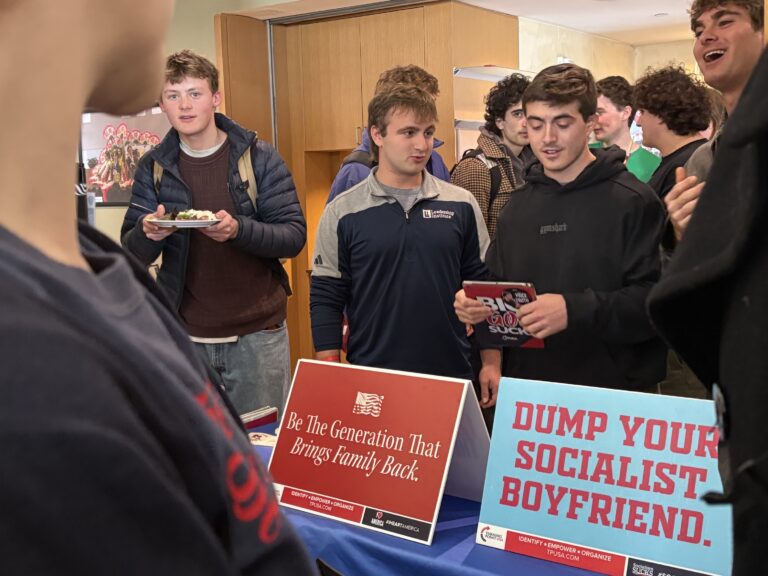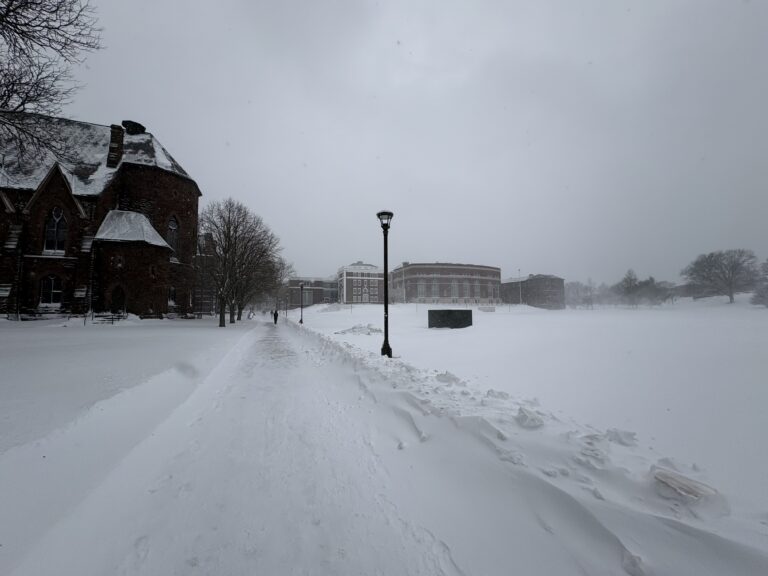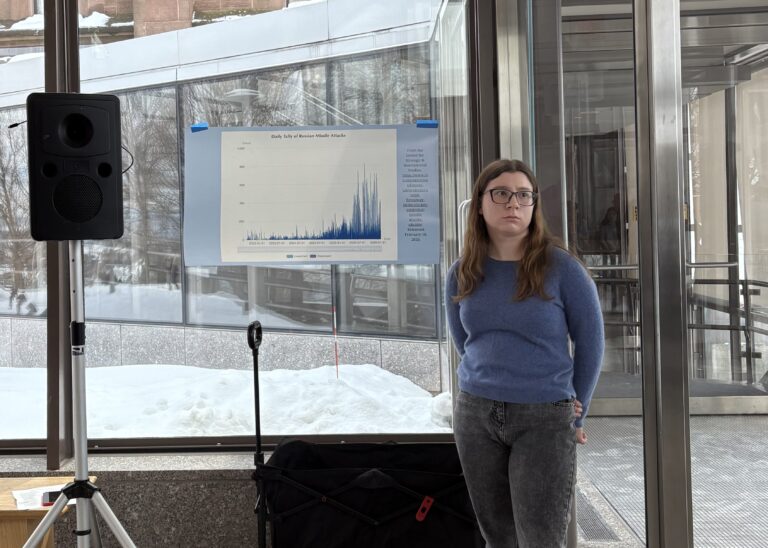Lecture sheds light on Chinese philosophy
East Asian Studies and Philosophy faculty and students gathered to bridge the gap between East and West on Thursday evening, marking the 31st annual Mansfield Freeman Lecture, the oldest series in the United States devoted to East Asian studies.
“Mansfield believed that Americans needed to learn much more about East Asia,” said Chair of the East Asian Studies Program and Director of the Freeman Center for Asian Studies Stephen Angle.
Freeman, a member of the Class of 1916, studied in China after graduating and brought his knowledge and experiences back to his alma mater. His generous donations to the University have lived on, even after his death in 1992.
This year’s lecturer was Roger Ames, author and Professor of Philosophy at the University of Hawaii. Ames presented a lecture entitled, “Li [ritual] and the A-theistic Religiousness of Classical Confucianism.”
“[Ames] is concerned that Chinese philosophy be taken seriously as philosophy, and to do that we must understand its context,” Angle said during the introduction.
Ames identified the problem of cultural reductionism- the act of taking somebody else’s culture and rewriting it with one’s own presuppositions. In the case of East Asian studies in the West, the Chinese philosophical tradition is Christianized, then Orientalized. Ames said this tendency must be reversed considering China’s present and growing importance in the global community. He said that American politicians must understand Chinese history and thought in order to hold successful international conferences with Chinese politicians.
“[In the East,] people are contextualized by their relationships, not by their physical character,” Ames said. “Individuality comes after.”
According to Ames, the human-centered religiousness of Confucianism and the related notion of the enhanced human experience stems from this. In contrast to the Western God-centered religiousness, Confucianism teaches that with li, humans’ “animality” is lifted and enhancements such as art are achievable.
“We are given our bearings and must make the future religious by inspiring it,” Ames said.
Attendees of the lecture learned a lesson about China and a lesson about learning in general.
“China is important for our world, particularly for young people, and we don’t know it well enough,” Ames said. “We must go outside of our home tradition and view things with fresh eyes.”
Several attendees said that they were grateful for the evening’s lesson.
“The Western stereotype of China has been distorted completely,” said Jeremy Finch ’09. “Without examining primary source texts like Confucius, we end up knowing no more about Chinese culture than what we can learn from watching Bruce Lee movies. I liked how Professor Ames highlighted the difference between eastern and western forms of thought, and how our way of thinking philosophically is often little more than picking out a piece of our life experience and trying to make it casual and rational”
The attendees said they found Ames to be knowledgeable as well.
“The lecture was impressively inter-disciplinary,” said Emily Garts ’06. “[Ames] clearly has a great command of Chinese, and speaks the languages of philosophy and history extremely well. I would give him a best all-around award. I was captivated.”
On Friday morning, Ames spoke with students and faculty at the Center for the Humanities, as the Freeman Lecture is traditionally followed by an informal colloquium during which attendees may continue discussion with the guest speaker.







Leave a Reply